All products featured are independently chosen by us. However, SoundGuys may receive a commission on orders placed through its retail links. See our ethics statement.
Can headphones cause tinnitus?
Headphones can cause tinnitus, but it’s neither the Bluetooth nor the noise canceling that’s to blame. Both wireless headphones and earbuds are harmless when used responsibly. What can give rise to tinnitus, however, is hearing loss.
The problem with headphones is that people tend to listen at high volumes. When you exceed safe listening levels for too long, your hearing will suffer. And tinnitus happens to be a common side effect of hearing loss. Let’s unpack each of these points in order.
Editor’s note: this article was updated on February 7, 2023, to update frequently asked questions.
What is tinnitus?
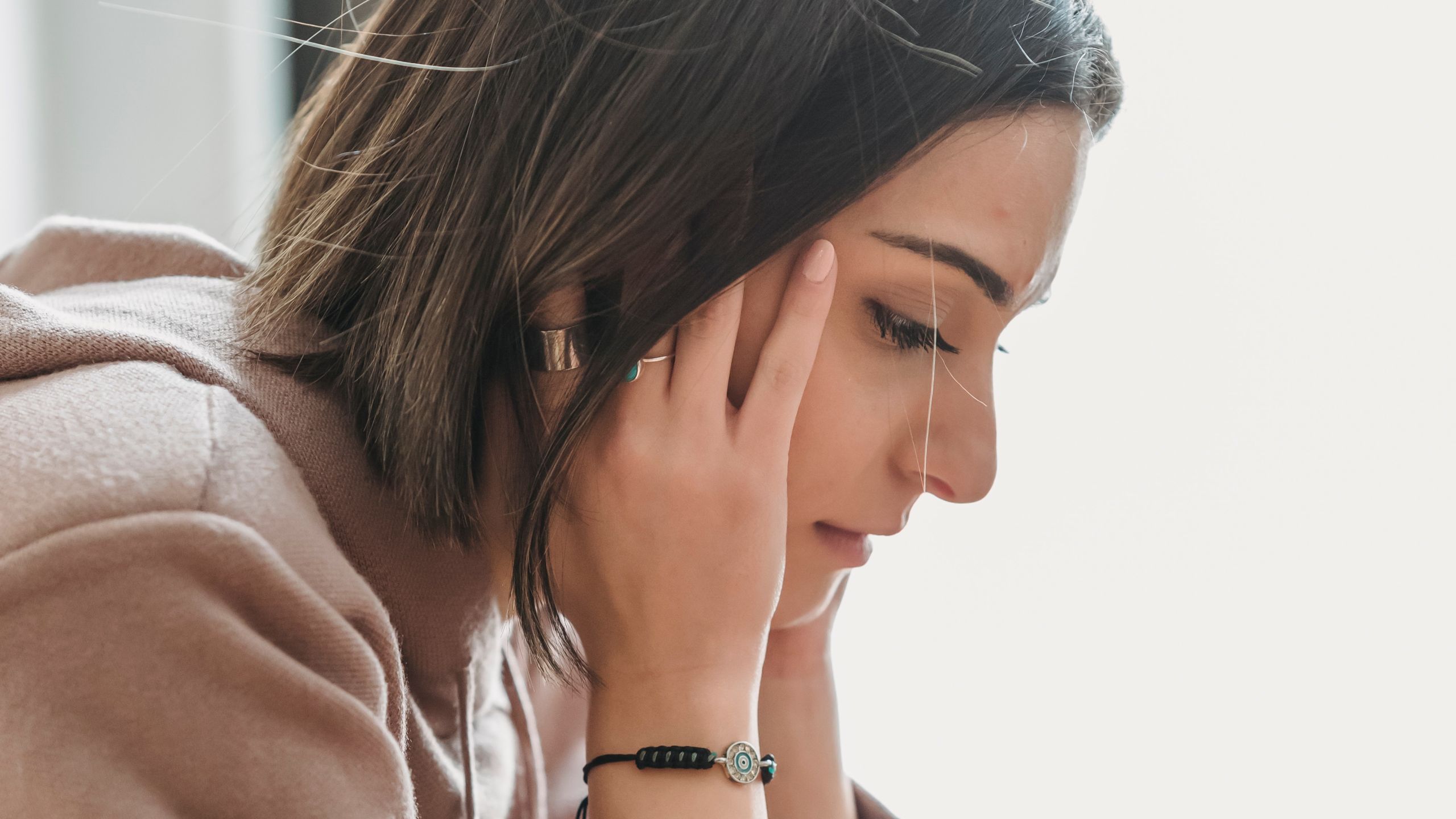
Tinnitus is a sound, heard in one or both ears, that lacks an external source. People typically describe it as a high-pitched ringing or hissing noise, though each tinnitus is different and can change over time.
Tinnitus has numerous causes, including ear infection, diabetes, hypertension, medication, or brain injury. Many types of tinnitus are temporary and reversible. The most common trigger for chronic tinnitus is sensorineural hearing loss (SNHL), which can be age-related and noise-induced. And that’s where headphones and your listening habits come in.
How can headphones cause hearing loss and tinnitus?
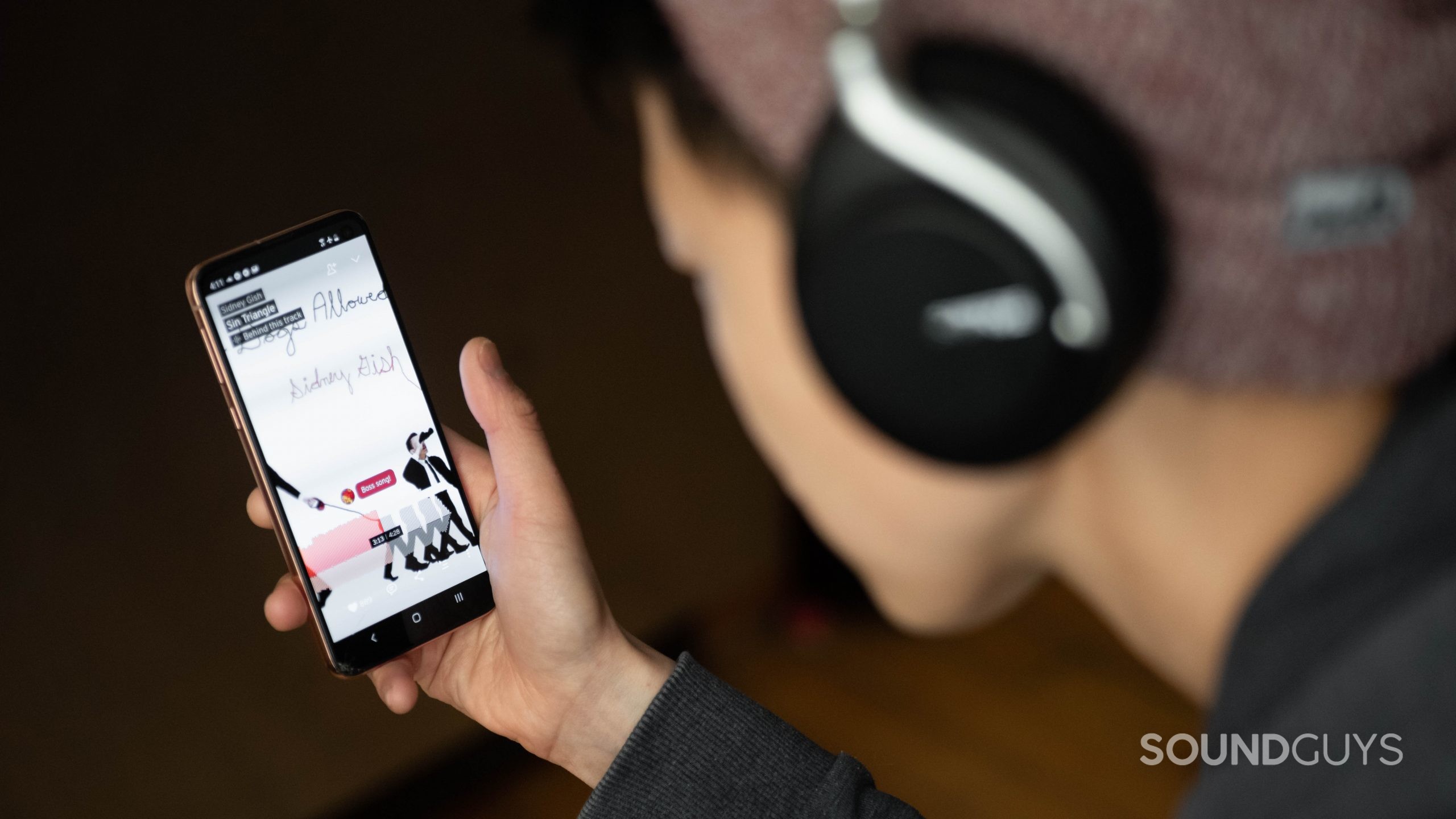
Hearing loss happens to all of us as we age, but it happens faster when we strain our ears. Prolonged exposure to loud sounds can lead to noise-induced hearing loss (NIHL). This affects almost every adult, adolescent, and kid today.
Not necessarily. The thing about headphones is, they subjectively don’t sound as loud as loudspeakers, even when the same sound pressure reaches your eardrum. With the sound completely isolated to your ears, the rest of your body misses out on vibrations along with other physical and spatial cues. The lack of this visceral experience may tempt you to increase the volume, especially with earbuds, or when you’re in a noisy environment.
It’s become the norm to use headphones to drown out the world. One study reports that a majority (over 60%) of young people use headphones regularly, and over a third of them (37%) use their headphones at high volumes. Several studies conclude that using headphones can impair hearing. A Swedish study, finds that nine-year-old children who use headphones multiple times a week to listen to music have poorer hearing than those who don’t use headphones. Unsurprisingly, hearing loss is on the rise among adolescents.
Frequently using your headphones at unsafe volumes can cause both hearing loss and tinnitus.
People with hearing impairment are twice as likely to have tinnitus compared to those with typical hearing. This study by Oosterloo et al. also confirmed that while hearing loss is age-dependent, tinnitus is not. According to those researchers, age alone doesn’t increase your risk for tinnitus, possibly because the hearing loss develops gradually. Rather, tinnitus appears to be a more likely side effect when hearing loss happens suddenly and the brain poorly adapts to the abrupt lack of input.
Can active noise canceling headphones impact tinnitus?

We already established that headphones don’t cause tinnitus, unless you turn up the volume too much. The same is true for active noise canceling (ANC) headphones; the technology as such doesn’t cause tinnitus.
But many people wonder whether noise canceling headphones can actually help their tinnitus. That’s a different question entirely, and the answer is maybe.
How does noise canceling work?
Active noise canceling isn’t to be confused with passive isolation, something that all headphones and earphones (save for a select few) have to some degree since they cover or plug up your ears. Noise canceling, on the other hand, requires battery power to literally cancel out external noise with sound.
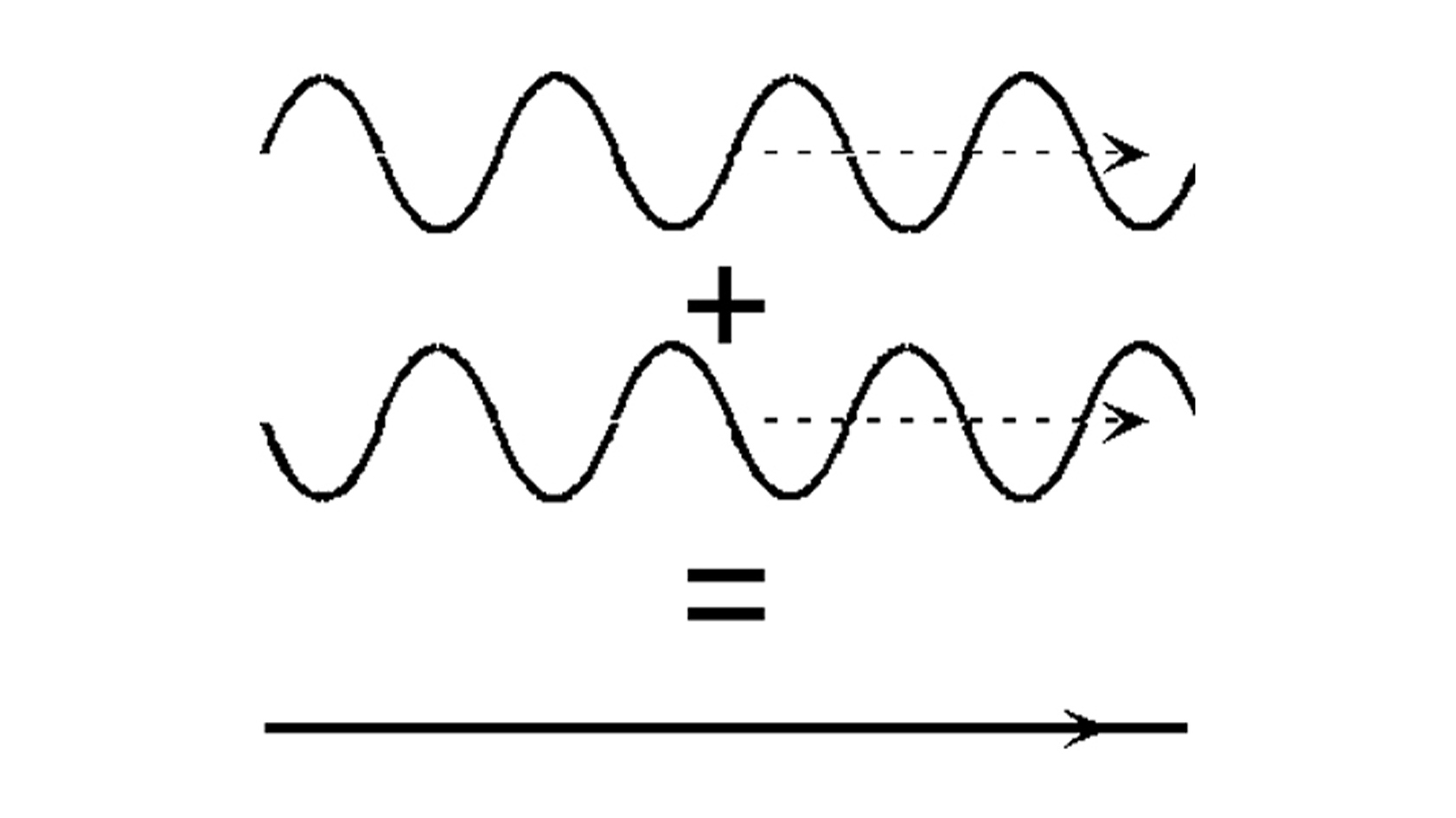
An embedded microphone registers ambient noise while the headphone’s speaker drivers emits matching sound waves that are out of phase relative to the unwanted background noise. The out-of-phase “anti-noise” waves then negate the ambient sound waves in real time, effectively canceling them; this is called destructive interference. In a perfect world, this results in complete cancellation causing negation of ambient noise.
How can noise canceling headphones help with tinnitus?
Noise canceling headphones can’t quiet your tinnitus, but headphones with effective noise isolation and noise cancellation can significantly attenuate ambient noise. Because ANC headphones shield you from external noise, you can listen at lower volumes, which reduces the chance of (further) hearing loss, and in turn, protects you from tinnitus.
What are safe volume levels?
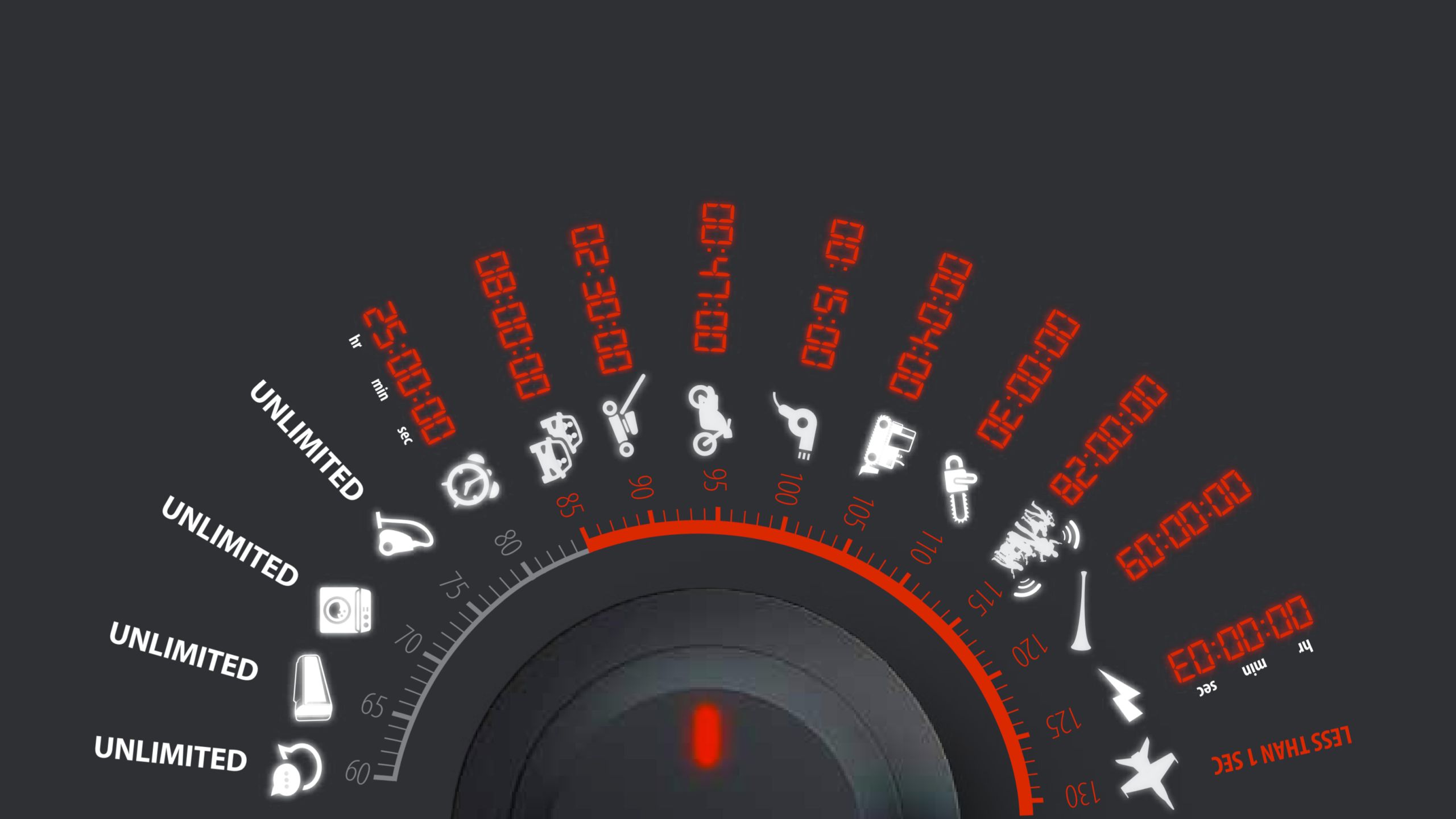
When you turn up the volume on your headphones, you can reach levels of over 115dB(SPL), which is equivalent to a rock concert. At that volume, hearing loss happens within minutes. If you care about your hearing and want to avoid tinnitus, you should limit the volume and your listening time.
For adults, up to 80dB(SPL) is a safe volume, though you should still give your ears regular breaks. Keep in mind that exposure to 89dB(SPL) for more than five hours can cause permanent NIHL. For kids, ASHA recommends no more than 75dB(SPL). Generally, you should limit your listening time to one hour per day.
How can you maintain a safe listening volume?
A rule of thumb is to stay at or below 70% volume when using over-ear headphones. With in-ear headphones (aka earbuds), 60% volume is recommended. You can also use mobile apps or settings on your phone to control the maximum volume. If you’re in the market for new headphones, consider volume-limited headphones, which typically max out at 85dB(SPL).
What are the best headphones for tinnitus?
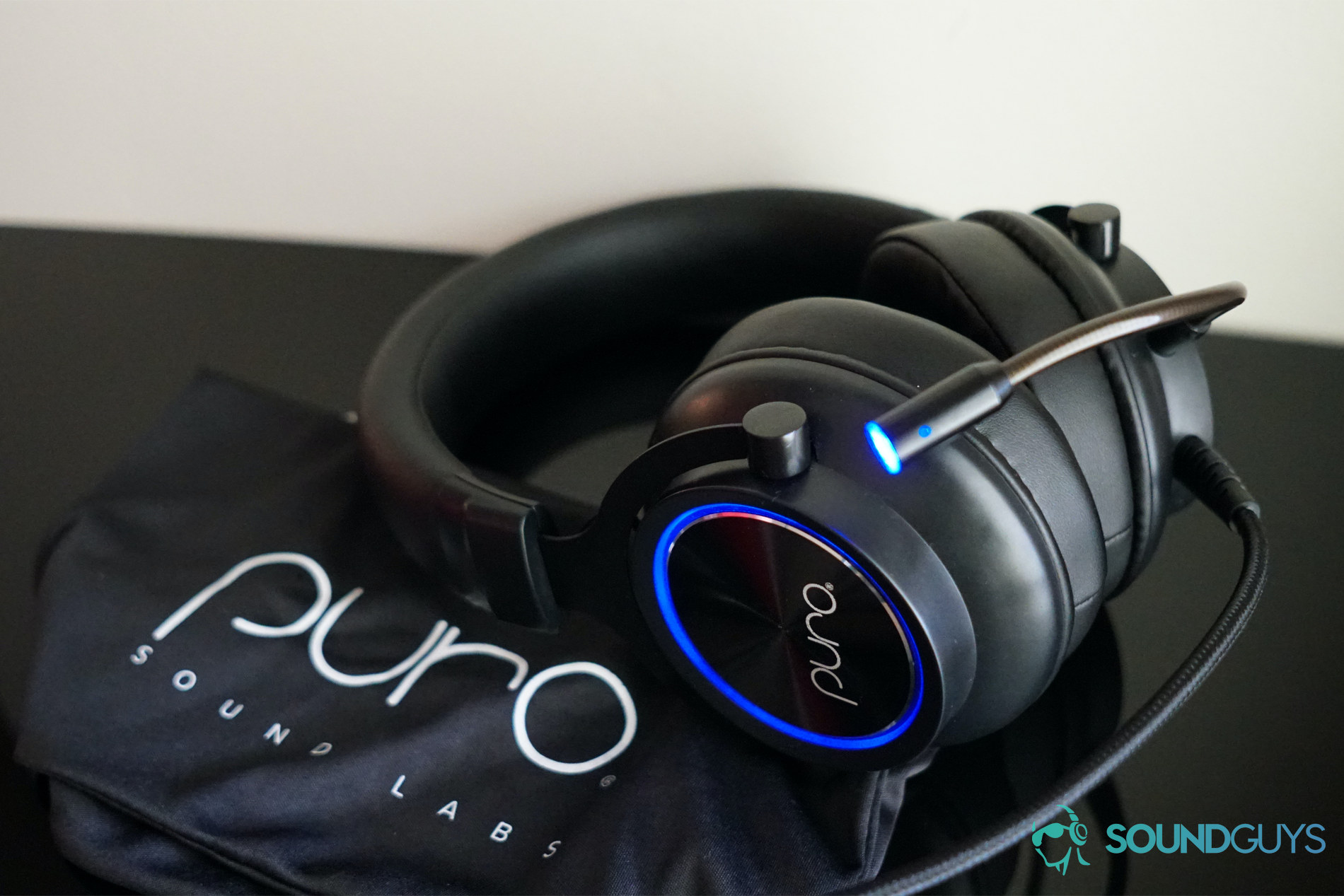
The best headphones for tinnitus are those least likely to give you hearing loss. Avoid earbuds. Instead, choose over-ear headphones with good noise isolation and active noise canceling like the Sony WH-1000XM4. If you can, go with volume-limited headphones, such as the Puro Sound Labs PuroPro for adults, the PuroGamer for adults and adolescents, or the PuroQuiet for kids and adolescents. Whatever headphones you use, keep the volume down.
Finally, if you already suffer from hearing loss or tinnitus, consider getting a hearing aid. Hearing aids can slow down the progression of hearing loss and the mental decline associated with it. Hearing aids can also help with tinnitus.
Frequently asked questions about tinnitus
Yes, using headphones for too many hours per day or at unsafe volumes can worsen your tinnitus. Moon Audio recommends that people who suffer from tinnitus avoid earbuds that sit directly in the ear canal because “the pressure and nearfield of the drivers can aggravate tinnitus.”
Loud noises can cause temporary ringing in your ears. It doesn’t matter whether the noise came from your headphones or any other loud environment. If you’ve had your tinnitus for six months or more, it’s likely chronic, which means permanent.
There is no known cure for chronic tinnitus. What you can do is to guide your focus away from the phantom noise, for example by listening to white noise. Some hearing aids offer tinnitus treatment programs through companion apps. The Widex Zen Tinnitus Management and ReSound Relief apps, for example, are free, and you can use it with regular headphones.
If you already have hearing aids, speak with your care provider as they may be able to unlock tinnitus treatment programs available within your hearing aids’ companion app. Owners of Widex Moment and Widex Moment Sheer hearing aids, for example, have access to SoundRelax. According to Dana Helmink, AuD, Senior Director of Audiology and Clinical Education at Widex, SoundRelax uses fractal sounds to “support relaxation, concentration, and well-being.”